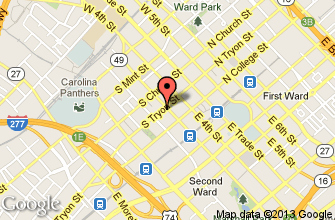News Room
PrintWhat did the Supreme Court Say? Creditor Claim for Stale Debt in Chapter 13 Case Does Not Violate the FDCPAAuthored by: Michael H. Weaver
May
17, 2017
The United States Supreme Court recently held in Midland Funding, LLC v. Johnson, 581 U.S. ___ (2017) that filing a proof of claim that is obviously time-barred in a Chapter 13 debtor’s bankruptcy case is not a violation of the Fair Debt Collection Practices Act (FDCPA).
In Midland Funding, Midland filed a proof of claim in the debtor’s bankruptcy case asserting that the debtor owed Midland on account of unpaid credit-card debt. The statement added that the six-year statute of limitations had long since run because the last time any charge appeared on the debtor’s account was more than ten years before the bankruptcy filing. The debtor objected to the claim, Midland did not file a response and the claim was disallowed. Subsequently, the debtor filed suit against Midland, claiming that Midland’s claim was a “false, deceptive or misleading representation” or was an “unfair or unconscionable means” to collect, or attempt to collect, a debt within the meaning of the FDCPA.
The Federal District Court held that the FDCPA was not applicable and dismissed the suit. The Eleventh Circuit reversed. Midland filed a petition for certiorari noting a division of opinion among the Courts of Appeals on this issue. The Supreme Court granted certiorari and in a 5-3 opinion (delivered by Justice Breyer) reversed the Eleventh Circuit’s decision.
First, the Court determined that Midland’s proof of claim falls within the Bankruptcy Code’s definition of “claim.” A “claim” is a “right to payment,” and under applicable state law such a right exists even after the statute of limitations runs. The Court also determined that a claim does not have to be enforceable to qualify as a “claim.” If a claim is unenforceable, it will be disallowed, but it still fits within the Bankruptcy Code’s definition of a “claim.”
Next, the Court analyzed whether Midland’s claim violates the FDCPA as a misleading statement or unfair or unconscionable debt collection practice. The Court determined the claim was not misleading after considering the legal sophistication of the audience reviewing the statement. The Court concluded that the audience in Chapter 13 bankruptcy cases includes a trustee who examines proofs of claim, objects when appropriate, and understands that claims can be subject to disallowance. Therefore, the statement was not “misleading.” The Court also concluded that the claim was not “unfair” or “unconscionable” (although noted it was a closer question). The Court distinguished the case’s facts from cases relied upon by the debtor involving debt collectors’ assertions of claims in civil suits known to be stale. Concerns about a consumer unwittingly paying a stale debt or paying the claim to avoid having to go to court are diminished in a Chapter 13 bankruptcy context because the consumer initiates the proceeding, a trustee who is knowledgeable about the claims allowance and objection process is available, and applicable bankruptcy rules guide their evaluation. Also, the Court noted in the bankruptcy system, untimeliness is an affirmative defense and the trustee typically bears the burden of investigating claims and pointing out that a debt is stale.
The Court’s holding in Midland Funding is consistent with holdings in a majority of the circuits and clarifies the issue in the context of Chapter 13 bankruptcy cases. However, the Court’s decision leaves open the question of whether the same result will be reached when similar claims are filed based on stale debts in cases under other chapters (e.g., pro se individual Chapter 11 case with no trustee appointed).




















